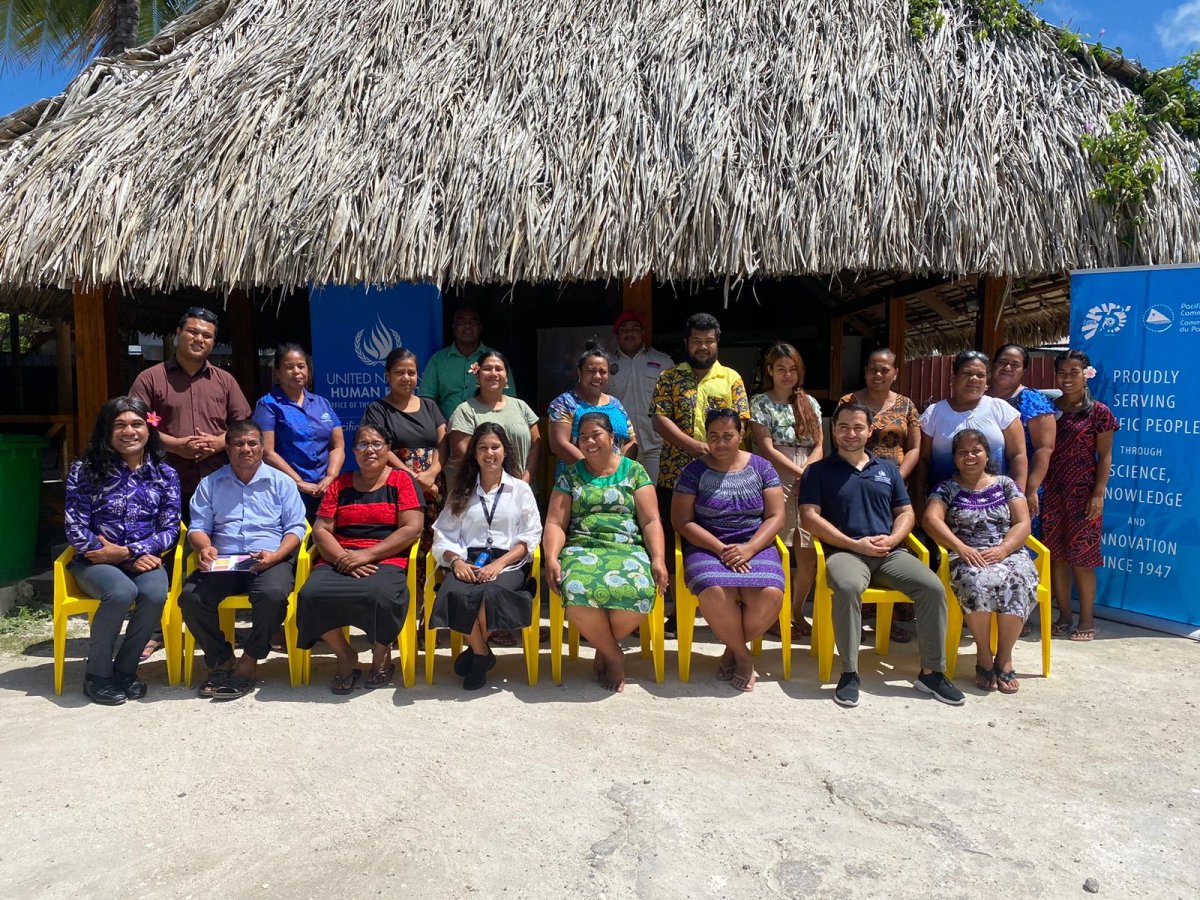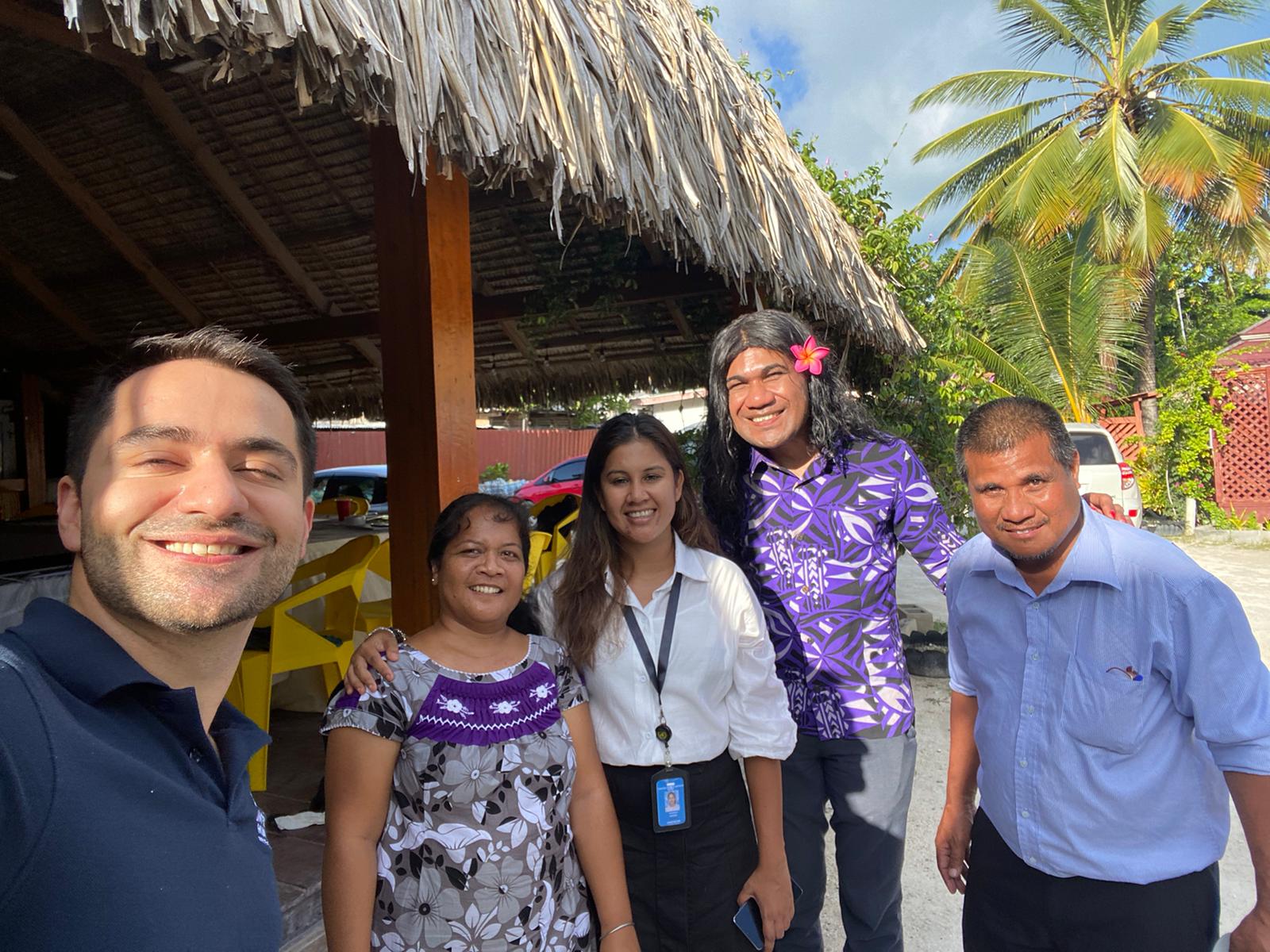The journey towards human rights advancement is not always an easy one. It’s a challenge shared and well understood among island nations in our Blue Pacific continent. Kiribati’s story and progress, to this effect, is a testament to the power of collective will and the determination to transform challenges into opportunities for positive change - change that is already securing a better tomorrow for its future generations.
In August 2023, Kiribati became the first Pacific Island Country to submit its initial report on the United Nations Convention Against Torture and other Cruel, Inhuman or Degrading Treatment or Punishment (UNCAT) – a significant milestone for a country known globally for its vulnerability to climate change.
With a population count of just over 120,000, Kiribati’s efforts to comply with international human rights standards and reporting is commendable. On 22 July 2019, the country became the 6th State party from the Pacific to UNCAT, and the 167th State party globally. The accession was welcomed by the Convention against Torture Initiative (CTI), and one that came in the wake of a commitment by the Government of Kiribati - during its Universal Periodic Review (UPR) in 2015 - to study UNCAT and its capacity to implement the Convention.

Reflecting on their UNCAT ratification and reporting process, Director for Human Rights under Kiribati’s Ministry of Justice, Mr Aretaake Ientaake, said the journey had not been easy. He credited their progress to the support of key partners including the Office of the High Commissioner for Human Rights (OHCHR) Pacific Region, Commonwealth Secretariat, United Nations Children’s Fund (UNICEF) and the Pacific Community’s (SPC) Human Rights and Social Development (HRSD) Division.
“We didn’t know Kiribati was the first Pacific country to submit its report to the UNCAT and this wouldn’t have been possible without the support of stakeholders including the HRSD team, and its former country focal officer in Kiribati, the late Amberoti Nikora – we would like to acknowledge all his hard work. The greatest lesson we have learnt from this process is that external partner support is critical and without their support, the process would have been very difficult to go through. We wouldn’t have made it without their advice and guidance,” he acknowledged.
In March this year, a request was submitted from Kiribati’s Ministry of Justice Human Rights Division for assistance in supporting the validation of its initial UNCAT Report. OHCHR and HRSD collaborated to facilitate the request and a validation workshop was held on March 28 and 29, 2023. For HRSD, this support aligned with the division’s objective to strengthen responsive governance for human rights, ensuring that state laws, policies and institutions are strengthened to serve the rights of all people. For Kiribati, the support would enable it to submit its initial report to the Secretariat of the UNCAT, in turn fulfilling its reporting obligation under the Convention.
“The process has been quite long. From the start when we signed up for this, when the President ratified UNCAT in July 2019, it took us a year to undergo preparations. And it has taken us more than two years to be able to complete this report,” said Mr Aretaake.

Reporting to treaty bodies in a timely and meaningful manner requires human, technical and financial resources at the national level. The reporting process helps States to take stock of its laws and policies, and collecting and analysing data to assess implementation. Reporting also helps to monitor progress in implementation, raise awareness among the general public and to consult with civil society organisations. It also provides opportunities for national dialogue, ensuring an inter-governmental coordinated response, and enabling countries to benefit from the experience of international experts.
As party to four of the nine core international human rights treaties – the Convention on the Rights of the Child (CRC), Convention on the Elimination of All Forms of Discrimination against Women (CEDAW), Convention on the Rights of Persons Disabilities (CRPD) and Convention against Torture and Other Cruel, Inhuman or Degrading Treatment or Punishment (CAT) – the Kiribati government has been able to ensure that all their State reports to the respective treaty bodies are now up-to-date. This is an achievement that Kiribati can be proud of.
“Apart from the support of external partners, we also had political will that made us push forth, a working taskforce that put things in place and active Secretariat members so I would like to also acknowledge our team members for completing our initial report for submission to UNCAT.”
In a word of encouragement to the region, Mr Aretaake said, “Our message to our fellow PICs would be to get the right mechanism, one that works for their country context. For countries who haven’t ratified UNCAT yet, convince your politicians to promote government will, to support and ratify UNCAT. We are one community in the Pacific and where we can help, Kiribati stands ready to share its learnings based on our experience, if needed.”
Acknowledging the submission of its initial report, the Committee Against Torture has requested representatives of the Kiribati Government to appear before the Committee on 7 November 2023, and at the Office of the High Commissioner for Human Rights on 8 November 2023.
The true measure, however, of Kiribati's advancement isn’t in policy or reporting papers alone. For generations to come, it will be in the stories of transformation, and the lives improved by these efforts. It will be in the voices of women who found their place in decision-making, the children who dared to dream beyond the limits, the elderly who witnessed their society evolve, and in the breakthroughs of people living with disability against the odds. It's a story that tells of overcoming obstacles, bridging gaps, and the power of collective action in creating a better tomorrow – a tomorrow where human rights prevail.
- Log in to post comments



